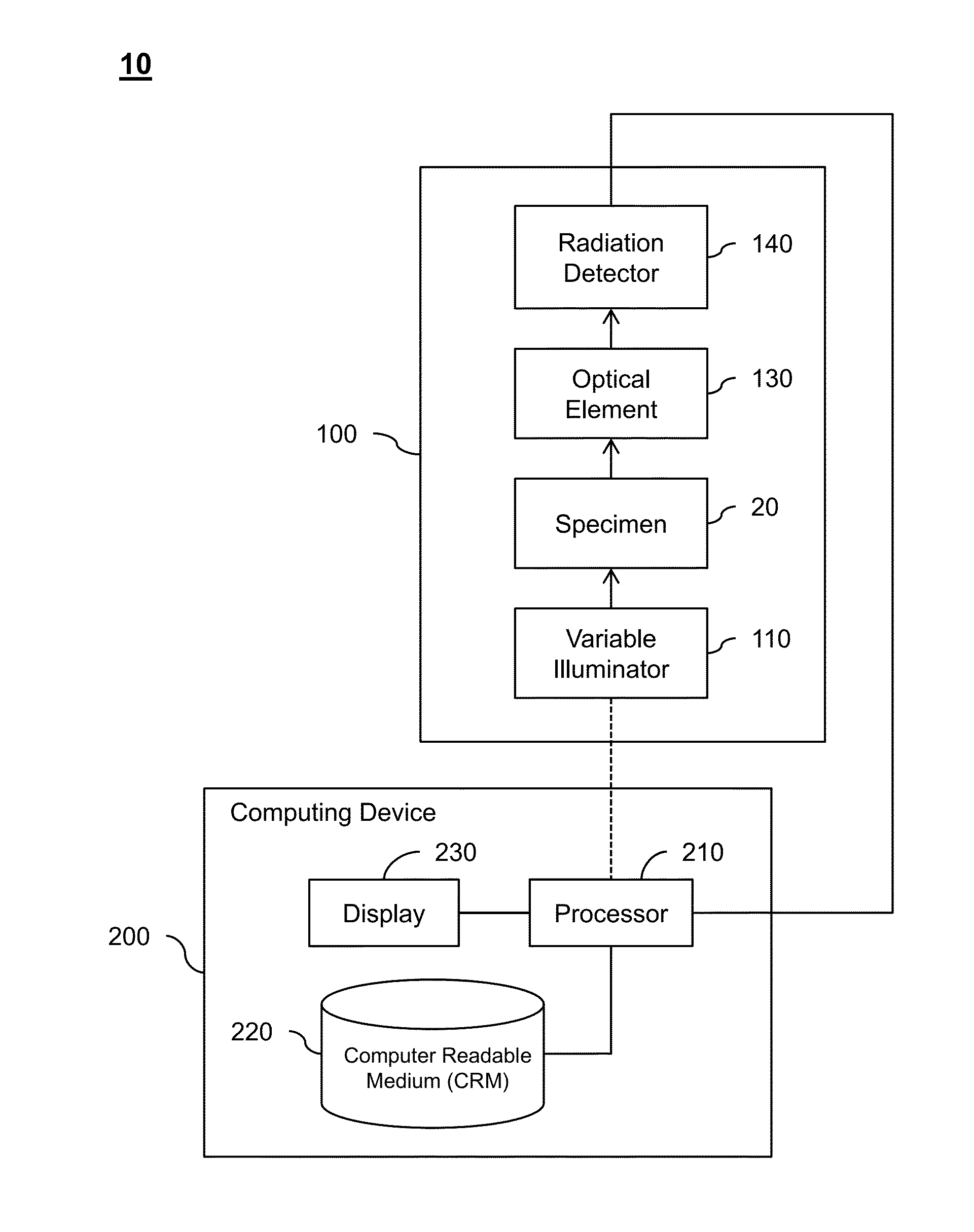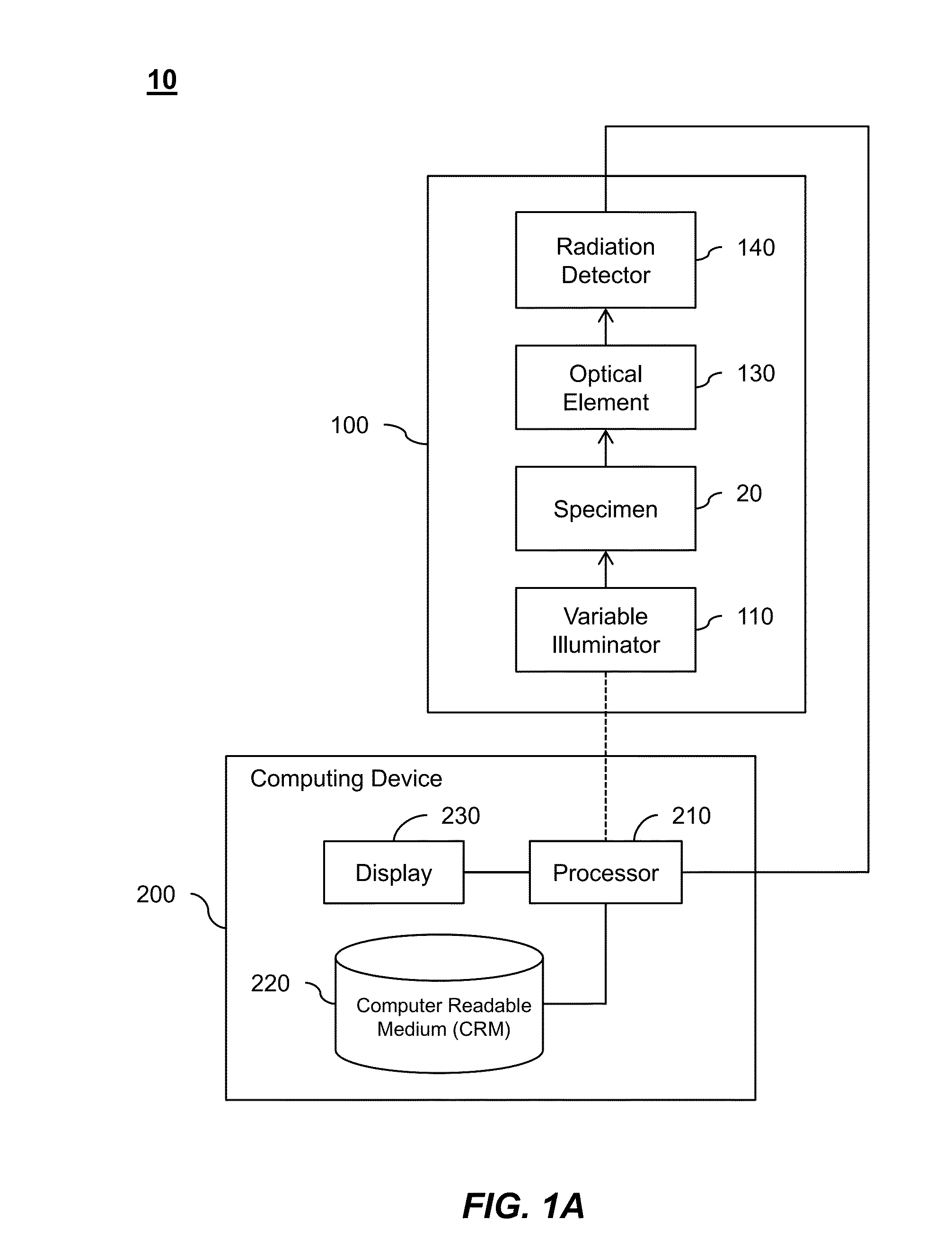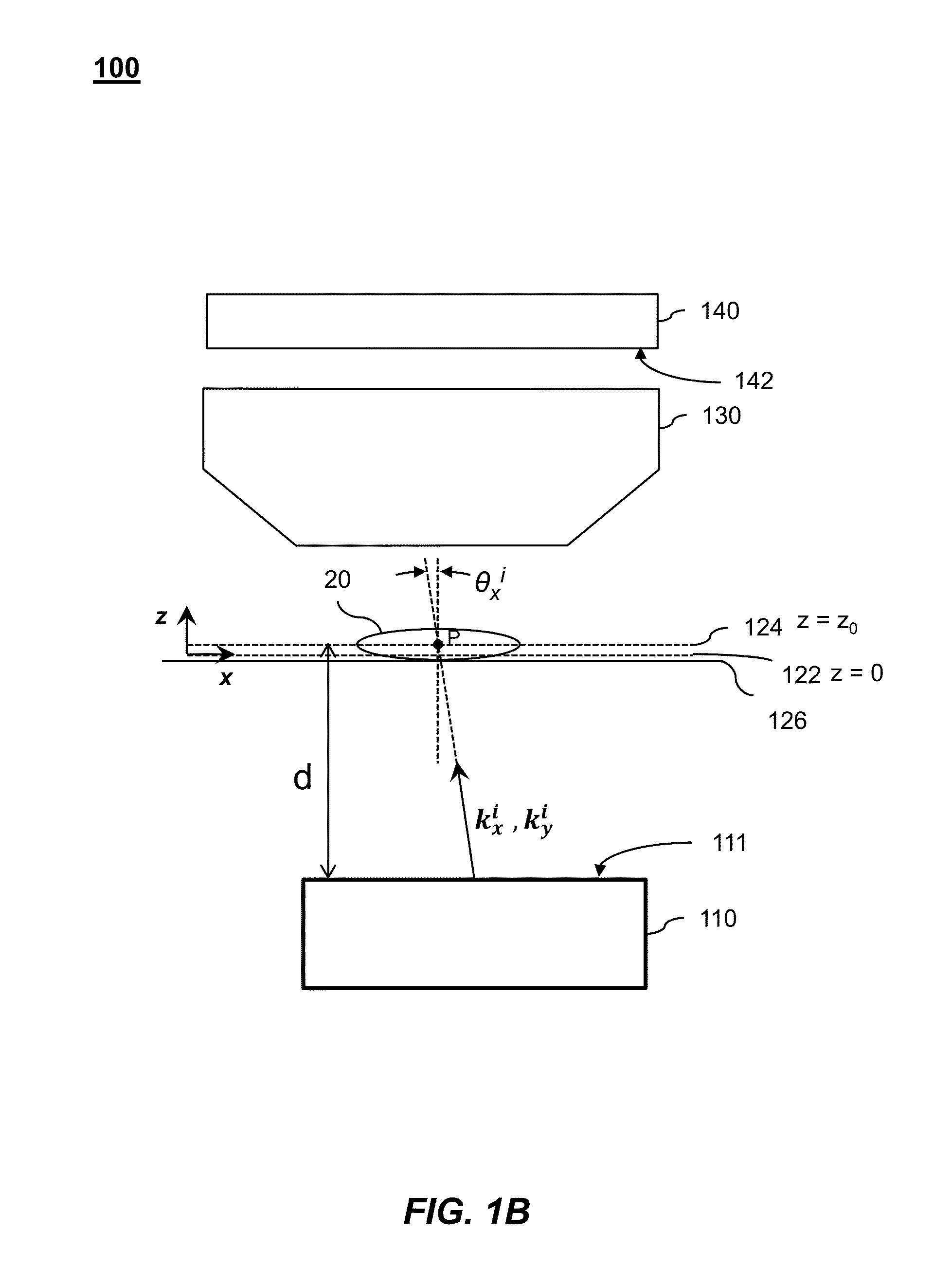Fourier Ptychographic Imaging Systems, Devices, and Methods
a ptychographic imaging and fourier technology, applied in the field of wide field of view and high-resolution digital imaging techniques, can solve the problems of compromising image resolution and field of view, limiting the output of conventional imaging platforms (e.g., microscopes), and limiting the use of conventional imaging platforms. to achieve the effect of expanding the depth of focus of the fpi system
- Summary
- Abstract
- Description
- Claims
- Application Information
AI Technical Summary
Benefits of technology
Problems solved by technology
Method used
Image
Examples
Embodiment Construction
[0054]Embodiments of the present invention will be described below with reference to the accompanying drawings. Although embodiments of FPI systems, devices, and methods may be described herein with respect to illumination with visible light radiation, these FPI systems, devices, and methods may also be used with other forms of radiation such as, for example, acoustic waves, Terahertz waves, microwaves, and X-rays.
[0055]Some embodiments include an FPI system comprising a variable illuminator, optical element, radiation detector, and a processor. The variable illuminator successively illuminates a specimen being imaged with plane waves at a plurality of N different incidence angles. The optical element filters light issuing from the specimen. The optical element may be, for example, an objective lens that accepts light issuing from the specimen based on its numerical aperture. In some cases, the optical element may be a low numerical aperture objective lens that provides a correspond...
PUM
 Login to View More
Login to View More Abstract
Description
Claims
Application Information
 Login to View More
Login to View More - R&D
- Intellectual Property
- Life Sciences
- Materials
- Tech Scout
- Unparalleled Data Quality
- Higher Quality Content
- 60% Fewer Hallucinations
Browse by: Latest US Patents, China's latest patents, Technical Efficacy Thesaurus, Application Domain, Technology Topic, Popular Technical Reports.
© 2025 PatSnap. All rights reserved.Legal|Privacy policy|Modern Slavery Act Transparency Statement|Sitemap|About US| Contact US: help@patsnap.com



